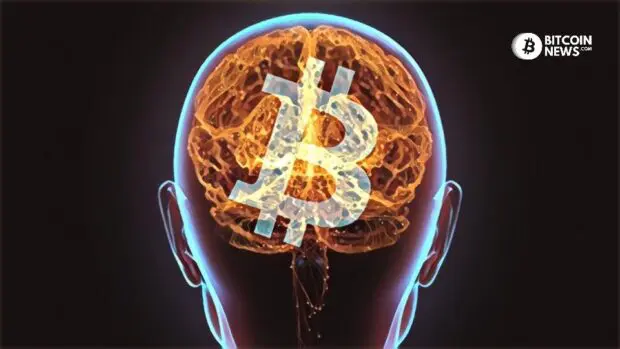The relationship between the brain and bitcoin and the long term effects is complex and not very well understood.
On on hand, bitcoin can produce financial gains, community, self sovereignty, and a sense of control over long term outcomes which would develop a positive impact on mental well-being.
On the other hand, the volatility and unpredictability of any innovative market can incite anxiety and stress thereby developing a negative impact on mental well-being. However, a DCA strategy can ensure your peace of mind as it doesn’t require you to watch the market.
Serotonin and dopamine (neurotransmitters in the synaptic cleft of our brains) are involved in long term hodler neuroplasticity. These neurotransmitters are responsible for changing brain shape and function.
The volatility of the bitcoin market can cause a roller coaster of emotions. These highs and lows release dopamine, generating feelings of euphoria and despair. The stress of potentially losing significant amounts of money can cause anxiety, increasing norepinephrine and dopamine negatively.
High dopamine levels are associated with poor impulse control, mania, difficulty sleeping, daytime sleepiness, and addiction.
Sam Bankman-Fried, the FTX founder, was noted to have used stimulant patches that are used to treat Parkinson’s disease. Parkinsons occurs due to the loss of dopaminergic neurons of the substantia nigra pars compacta in our brain.
Bitcoin as a long-term investment can bring financial stability, security, and a sense of community, which would lead to a more positive outlook on life and improved mental health.
In terms of neurophysiology, serotonin is related to the body’s sense of well being. It stimulates digestion, helps wound healing, and regulates mood.
Some ways to boost serotonin levels involve getting physical exercise, moderate exposure to sunlight, managing stress and increasing dietary nutrients such as lean protein, B6, magnesium, and L-theanine.
It is also important to note that while the potential benefits of bitcoin can positively impact mental health, there are other factors to consider; positive personal relationships, physical health, and overall life satisfaction are also key.

Overall, it is crucial for individuals to approach bitcoin with a level head and consider the potential risks and benefits as well as carefully managing emotions.
Sustaining balance between these neurotransmitters is an art and in itself can create different habits and neuroplasticity of the brain. The stress of bitcoin volatility can become quite overwhelming. Support from friends, family, or mental health professionals might be necessary.
The relationship between mental health and bitcoin in the long term is complex and influenced by a variety of factors. The potential benefits of bitcoin can positively impact mental health by changing your habits and lifestyle for the better. It is important to approach any major life choice with caution and seek support if necessary.
References:
Breedlove, Robert “What is Money Show”
Ammous, Saifedean “The Bitcoin Standard, “The Fiat Standard”
Bitcoin Images: @hackzero twitter.com










